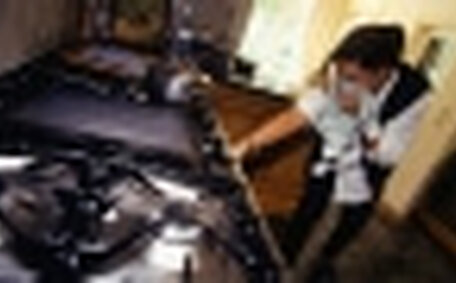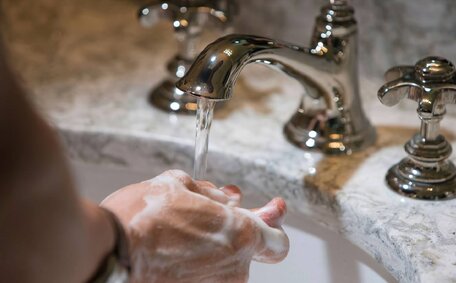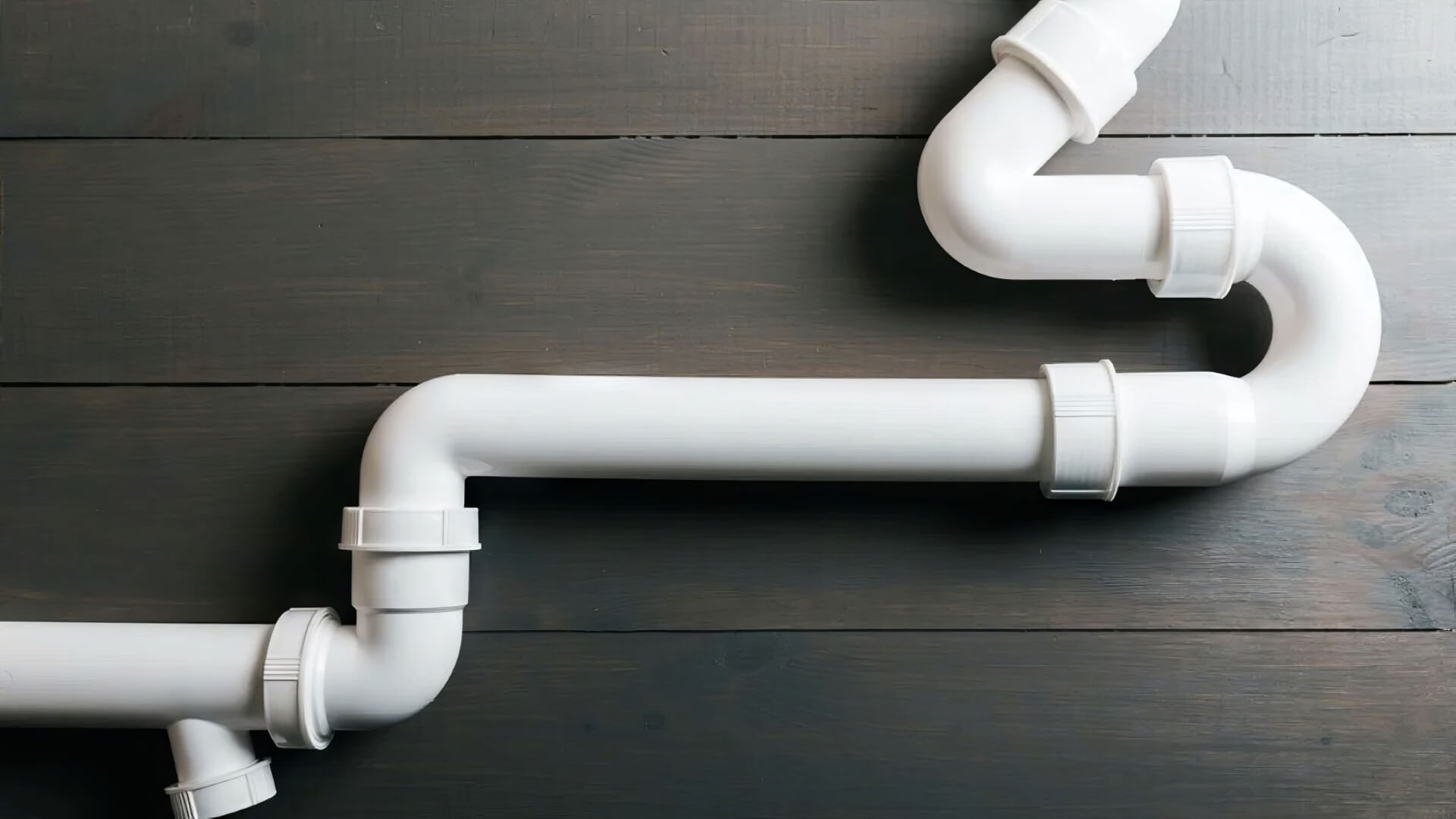Experiencing a cold shower when hot water is expected is highly frustrating. This guide details a troubleshooting approach for Lalor Park, Sydney inhabitants grappling with an absence of hot water.
This guide presents DIY solutions for common hot water heater issues and advises when to enlist a professional plumber’s help.
Hot water systems comprise multiple components that can fail, leading to a disruption in hot water supply.
The guide identifies various issues, from inadequate gas supply to defective heating elements, to help restore your hot water. Exercise caution when self-troubleshooting and call Lalor Park Plumbing for complex or dangerous problems.
Checking Power Supply and Basic Functions
When cold water greets you instead of a steaming flow when hot water should be present, the first step is to check whether the power supply to your gas water heater system has been disrupted. For gas hot water systems, investigate the possible reasons your hot water pilot light or electronic start button may have caused the unit to shut off.
Check the circuit breaker or fuse box for any tripped switches or blown fuses that might have halted your hot water supply. For electric water heaters, check the dip tube and locate the breaker box to ensure the proper circuit breaker is switched on.
Confirm that all gas and electric connections are completely deactivated before conducting any inspection.
If you have an electric water heater, turn off the power at the breaker before doing any work. Exercise extreme caution when dealing with electric or gas hot water units due to potential leaks, fires or explosions.
Many water heaters, including tank and tankless units, are equipped with safety features that could shut off the water supply.
A malfunctioning sensor or pressure valve suggesting your heater working intermittently at the storage tank can be the root cause of interruptions. Familiarise yourself with their locations and basic functions, allowing them to reset. Stay vigilant for persistent issues indicating more serious problems.
Consult your water heater’s manual for guidance and if the problem persists, get in touch with a professional plumber.
Occasionally, straightforward operational issues like incorrect control settings or the need to re-prime the system can cause the hot water tank to malfunction. A good starting point is to verify basic functions or attempt a system reset.
Identifying Faulty Components
There are several key components in hot water systems that can fail and cause issues with hot water supply. Identifying the faulty part is crucial for proper troubleshooting.
Heating Elements
Electric water heaters use metal rods, called heating elements, to warm the water. These elements can fail due to sediment build-up, wear and tear, or electrical shorts. Inspect for damaged wires, rust or burn marks.
A multimeter can help diagnose problems where there’s no indication of source, but it’s best to have a professional assess heating element issues.
Thermocouple
Gas water heaters depend on a pilot light to ignite the main burner. If the pilot light frequently extinguishes, carefully clean the thermocouple probe.
A malfunctioning thermocouple from wear or contamination will prevent the pilot light from staying lit.
Relief Valve
All water heaters feature a temperature and pressure relief valve for releasing excess heat or pressure. Replacement of this critical part should only be performed by a licensed plumber due to the risk involved.
If faulty, this safety component can cause constant water drainage. Look for signs of a malfunction or incorrect pressure settings.
Sediment Buildup and Clogs
With time, sediment and mineral deposits from hard water can accumulate in water heaters, affecting water flow throughout your residence. Scale can accumulate in tankless water heater’s heat exchanger, reducing water flow to all faucets in your home.
Audible rumbling during heating and decreased hot water pressure are telltale signs of sediment build-up.
Prevent sudden hot water shortages by flushing your water heater annually to remove sediment. by attaching a hose to the tank drain valve or heat exchanger inlet, allowing water to flow out forcefully.
Descaling solutions containing citric or phosphoric acid can also help dissolve mineral deposits when flushed through the system. Take safety precautions when doing any DIY maintenance. For severe accumulation, it’s best to have professionals descale or replace affected components.
Pilot Light and Gas Valve Issues
Gas water heaters rely on a pilot light to ignite the burner and heat water. If this small flame goes out, it must be manually re-lit before hot water will work. Then locate the control knob for the pilot assembly and follow instructions printed on the unit to spark and light it.
First check that your gas supply lines have proper pressure. Exercise caution when handling natural gas.
Problems with the thermocouple or gas control valves can also prevent the pilot from staying lit. The thermocouple generates a small electric current to signal a lit pilot is present.
If contaminated, replace it. Faulty gas valves require professional replacement as they regulate gas flow. Signs include pilot not staying lit or irregular flames.
If there is a very strong gas smell with no pilot light, If you suspect a gas leak, turn off the gas valve and promptly call your gas provider for an inspection. Never ignore warnings signs of a possible leak. Give us call for help from qualified plumbers regarding any complex pilot or gas valve issues to ensure safety.
Heating Element and Electrical Problems
Electric water heaters rely on internal metal heating elements to heat up the temperature of water. Over time, in electric models, these rod-shaped elements can fail due to mineral buildup, preventing water getting hot, or ageing. Signs of a defective element include not having hot water that’s hot enough or it remains lukewarm despite power.
Before doing any troubleshooting, make a check to see if your unit is operational and turn off power at the circuit breaker. Then, remove the access panel and use a multimeter to check if electricity is reaching the upper and lower heating elements. No voltage means there is a wiring issue that requires professional repair.
If the elements have power but aren’t heating properly, they may need replacement. If the elements have power but aren’t heating properly, they may need replacement. Have a licenced electrician assess heating elements and replace them if deterioration is detected.
DIY attempts at replacing heating elements can pose risks of electric shock and tank leakage.
Recurrent heating element failures warrant an inspection of your water supply and filters. You can install scale-control filters and perform annual tank flushing to prolong element life. But seek help from qualified electricians and plumbers for any complex electrical repairs or replacements needed.
High sediment levels are a classic water problem that leads to quicker element burnout.
Detecting Leaks
When water is coming out where it shouldn’t be in hot water systems, it indicates leaks needing immediate attention. You may also hear dripping sounds indicating your water heater working suboptimally coming from concealed pipes or notice a musty odour.
When your water heater fails, signs include warm water pooling around the tank instead of hot, and unexplained bill hikes.
Small leaks from fittings, valves or pipe connections can often be fixed by tightening joints or replacing worn gaskets. But leaks originating from cracks or holes in the water tank indicate irreparable failure requiring you to replace your unit. Switch off power water sources and power/gas supply valves before attempting any repairs.
If you suspect an instant gas leak, evacuate immediately and contact emergency services. Steer clear of triggering electrical switches or using mobile devices close to a potential gas leak.
For water leaks, turn off supply valves and shut down the unit to limit flooding. In such situations, you’ll need to call a licenced plumber to inspect and confirm if professional repair or replacement is needed.
Preventing a running out hot water situation by catching leaks early improves safety and minimises expensive water damage. Annual inspections from a qualified plumber can detect problems before catastrophic tank failures occur. Seek professional assistance at the first signs of leakage rather than attempting makeshift fixes on defective hot water systems.
Maintenance Tips
Addressing common problems with routine maintenance on your hot water system can extend its lifespan.
Annual Flushing
Once a year, attach a hose to your hot water heater’s tank drain valve or heat exchanger inlet and flush out sediment buildup. This makes your system more efficient and reduces mineral scale on heating elements.
Check Water Temperature
Ensure your hot water system isn’t making the water too hot. Excessive temperatures accelerate mineral deposit formation and component deterioration. Consult your user manual for proper thermostat settings.
Inspect for Leaks
Regularly inspect beneath the tank and along supply lines for leakage indicators. Identifying minor leaks swiftly can thwart significant water damage.
Replace Anodes
The metal anode rod inside your water heater tank corrodes over time to protect the unit. It’s crucial to have a professional replace the anode rod every 3 to 5 years to avert tank failure and guarantee the system’s dependability.
When to Call a Professional
Certain situations necessitate the expertise of qualified plumbers over DIY troubleshooting efforts.
If you suspect a gas leak, immediately turn off the gas supply and evacuate the house before calling emergency services. Learn more about our team at Lalor Park Plumbing who have the proper equipment and expertise to inspect suspected leaks in your gas hot water system and make necessary repairs.
For problems related to electrical components in electric hot water heaters, contact a licenced electrician right away. This includes heating element or wiring issues. Improper handling of electrical connections risks electrocution.
Professionals with industrial-grade equipment should address extensive sediment build-up that impedes hot water flow and necessitates descaling and pipe flushing. Early intervention prevents worsening clogs.
Consider the life expectancy of your hot water system, as constant malfunctions in tank too small units may necessitate replacement. Our staff can assess lifespan and recommend suitable new water heater models for your home.
Don’t hesitate to give us call for professional assistance when warranted. Call Lalor Park Plumbing on 1300 349 338 or email us at [email protected] for prompt and reliable service when faced with complex water heating issues.
Conclusion
Understanding the workings of hot water in your home is essential for daily comfort and routines. Recognising common issues that interrupt hot water supply enables methodical troubleshooting and the restoration of service, whether it’s for consistent shower temperature or other needs, while evaluating the necessity for professional intervention.
This guide has provided an overview of checking power connections, replacing heating system components, clearing sediment buildup, relighting pilot lights, fixing leaks, and performing routine maintenance. While some fixes may seem easy to address yourself, it’s vital to exercise caution when working with gas or electric systems.
Safety should remain the number one priority - unresolved issues can lead to calling our team at Lalor Park Plumbing if problems seem overly complex or dangerous to handle alone. Don’t delay on reaching out for repairs. Catching issues early prevents extensive damage down the road.
With over a decade of plumbing expertise serving Lalor Park, Sydney, our business has seen every common water heating breakdown. Our qualified technicians are ready to address common hot water issues, ensuring your water flows smoothly again with prompt repairs.
For advice, leak inspections, water heater replacements, or additional services, reach out to Lalor Park Plumbing at 1300 349 338 or via [email protected].






